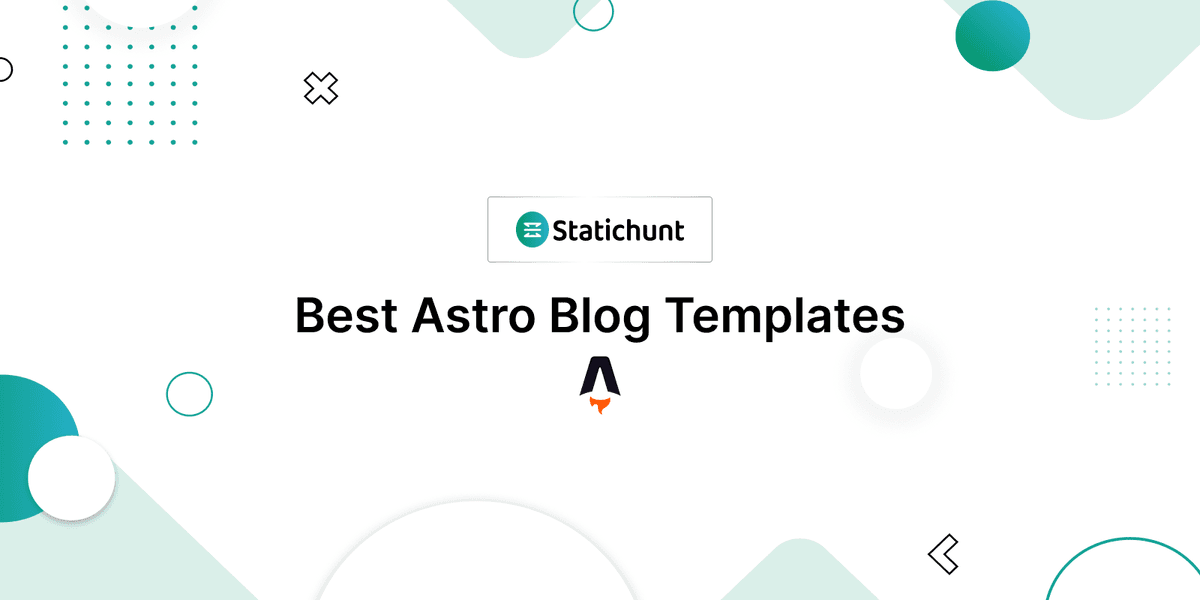I work on building and improving Astro templates every day, so I get to see firsthand what makes a theme fast, flexible, and fun to work with.
Astro has been one of the most exciting tools in web development in recent years. It’s built for performance, with blazing-fast static sites, minimal JavaScript by default, and a workflow that’s surprisingly beginner-friendly without holding back more advanced customization.
I’ve tested, built, and tweaked a lot of themes, both ours and from the broader community. I know how overwhelming it can feel to choose the right one for your project. So I’ve put together this list of some of the best Astro blog templates you can start with today.
And yes, since I work at Themefisher, a few of these are our own products. But this isn’t a “pick ours only” list. I’ve included community-made templates too, and every single recommendation is based on actual features, build quality, and developer experience, not bias.
1. Bookworm Astro Light – Free, Minimal, Multi-Author Blog
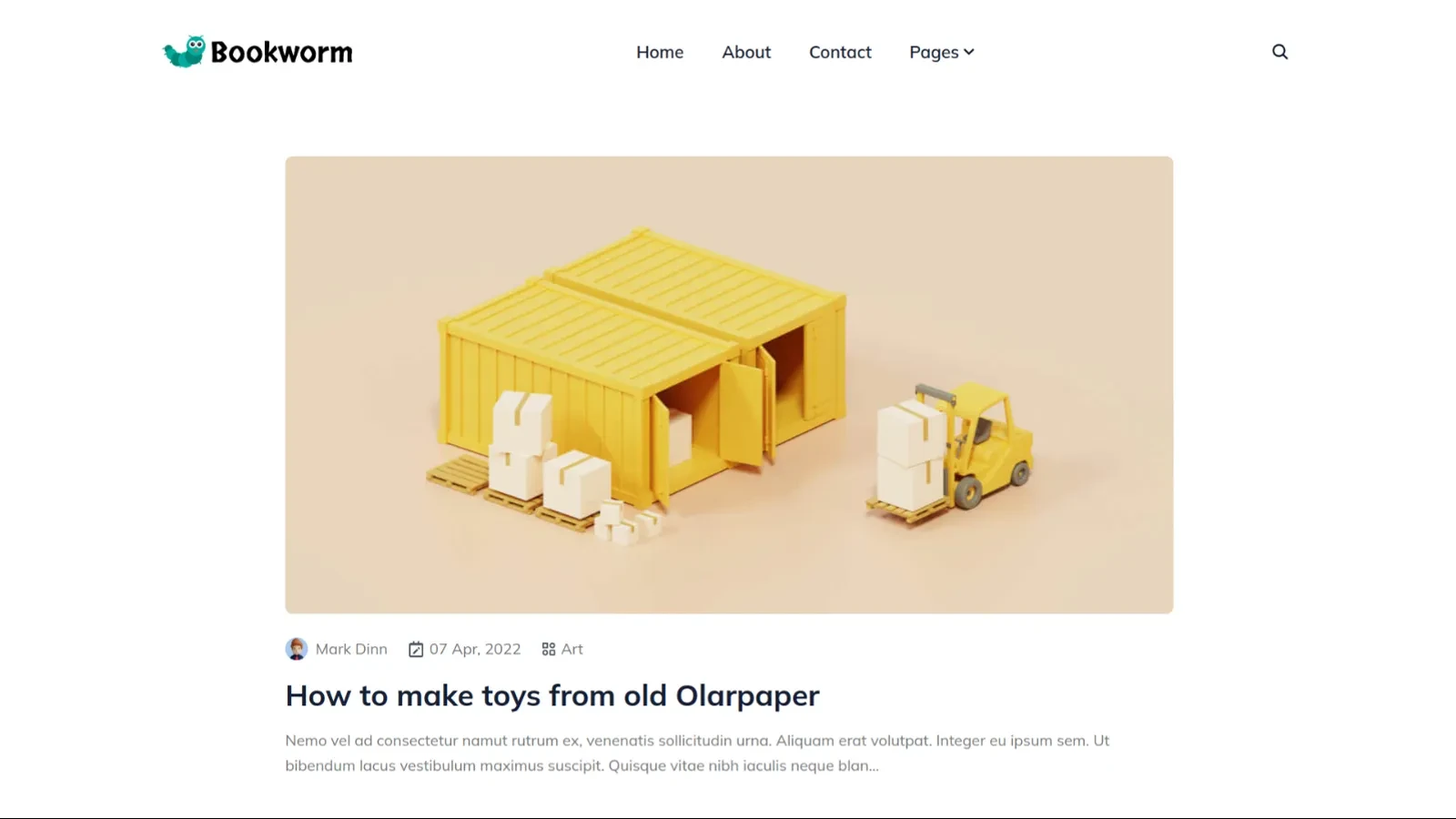
Bookworm Astro Light is a popular free Astro blog theme. It’s feature-rich, minimal, and highly customizable, built for all types of blogs and supports multi-author setups out of the box. It's fast, SEO-friendly, and easy to set up. A clean, multi-author Astro blog theme with strong SEO defaults and a frictionless setup makes it ideal for content-heavy sites.
Key Features:
- Multi-author support with author pages
- Built-in search functionality
- Contact form support
- Semantic HTML structure
- Custom logo support
- Markdown/MDX support with ready-to-use components
- Image optimization (Astro Image)
- Fully responsive design
- Built with Tailwind CSS
Best For:
Personal or professional blogs where reading experience and speed matter most.
2. Logbook Astro – Premium, Polished Blogging Experience
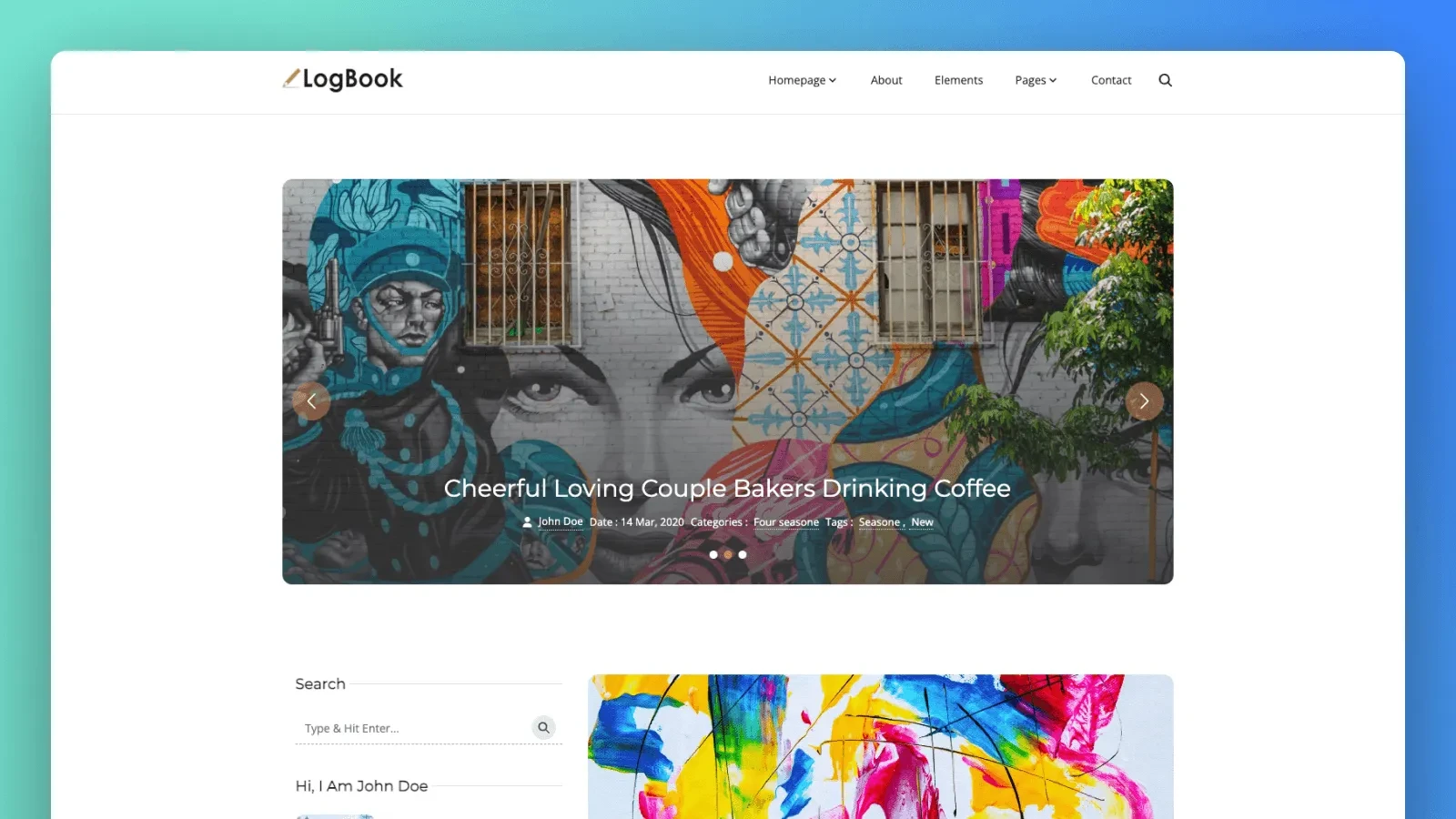
Logbook Astro is a premium template we built for creators who want a sleek, minimalist blog with a professional edge. It includes 16+ pre-designed pages, so you can launch faster without having to design everything from scratch. It's a premium Astro blog theme with multiple layouts, clean typography, and a professional finish.
Key Features:
- 16+ pre-designed pages
- Minimal, clean layout focused on readability
- Tailwind CSS for quick customization
- Maintained and supported by Themefisher
Best For:
Thought leadership sites, portfolios with a blog, and brand-conscious creators.
3. Northendlab Astro – Free Personal Blog (Light)
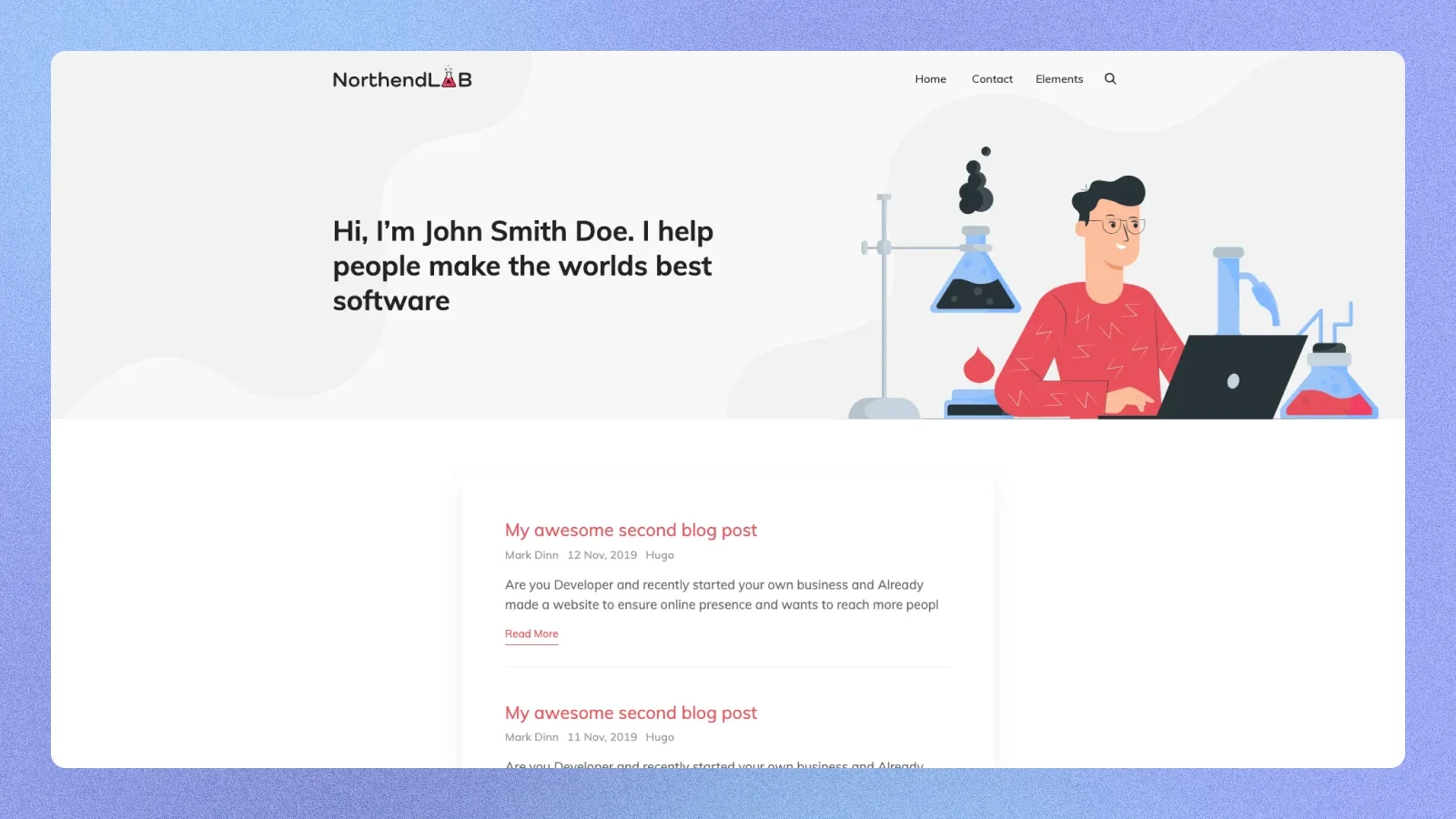
Northendlab Light Astro is a free personal blog theme built on Astro v4. It’s minimal and highly customizable (colors, fonts, menus, social links, SEO meta), fast by default, and supports MDX content. It also includes search, taxonomy, and multi-author features.
Key Features:
- Fully customizable (colors, fonts, menus, social, SEO meta)
- Multi-author + author single page
- FuseJS search
- Taxonomy (tags/categories)
- High PageSpeed performance
- Netlify config, contact form, OG image support
- Markdown/MDX with auto-imported components
- Built on Tailwind CSS
Best For:
Personal blogs that need search and taxonomy out of the box.
4. Astroplate – Multipurpose Astro Starter (Free)
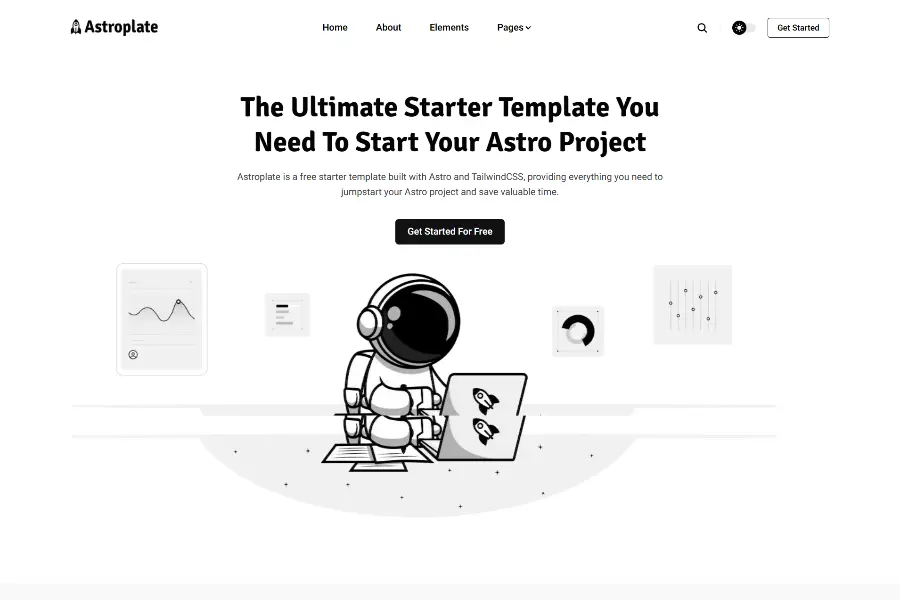
Astroplate isn’t one of ours, but it’s too good not to recommend. Built by Zeon Studio, it’s a free starter made with Astro, TailwindCSS & TypeScript. It works just as well for blogs as it does for landing pages and product sites. A flexible starter with modern sections (hero, features, testimonials, blog/news, newsletter) that adapts to blogs or full sites.
Key Features:
- Astro + TailwindCSS + TypeScript
- Ready-made sections for common page types
- Actively maintained by Zeon Studio
Best For:
Startups or creators who want one codebase for marketing pages and a blog.
You can check out Themefisher’s Astro Themes for more blog templates.
More Great Open-Source Blog Themes (Community Picks)
We don’t just recommend our own products; here are some excellent Astro blog templates from the wider community, all tested and evaluated on their actual features.
5. Hydrogen
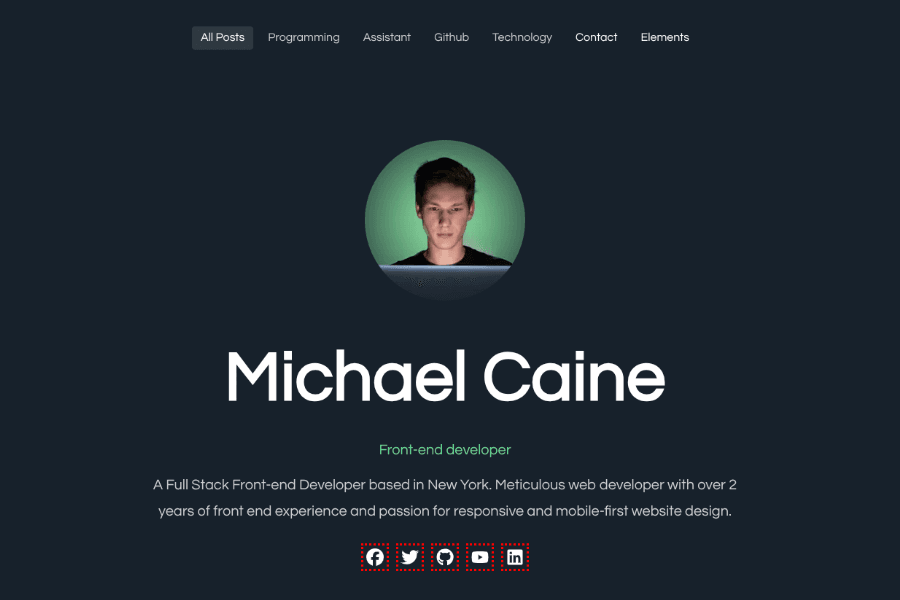
Hydrogen is a minimal Astro + Tailwind blog starter, highly customizable and ideal for personal blogs or small content sites. It's a lightweight Astro blog template with a focus on clean design, fast loading, and easy customization.
Key Features:
- Contact form support
- Disqus comment integration
- Related post suggestions
- Semantic HTML structure
- Custom logo support
- Includes all SCSS files
- Image optimization (Astro Image)
- Fully responsive design
- Built with Tailwind CSS
- Markdown/MDX support
Best For:
Personal blogs, photography journals, and minimalist content sites.
6. AstroPaper
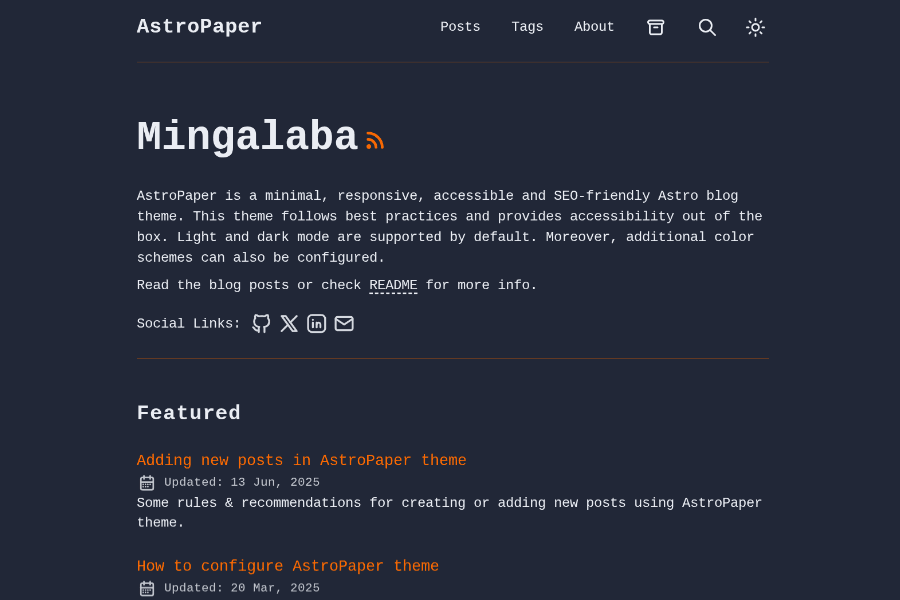
AstroPaper is a minimal, accessible, SEO-friendly Astro blog theme designed for readability and customization. A clean and fast blog template with built-in light/dark mode, fuzzy search, and excellent SEO defaults.
Key Features:
- Light & dark mode toggle
- Fuzzy search support
- Draft post handling
- SEO-optimized structure
- Sitemap & RSS feed generation
- MDX content support
- Fully responsive layout
- Accessible design
- Customizable styles via config
Best For:
Software development blogs, personal growth journals, and long-form articles.
7. Astrofy
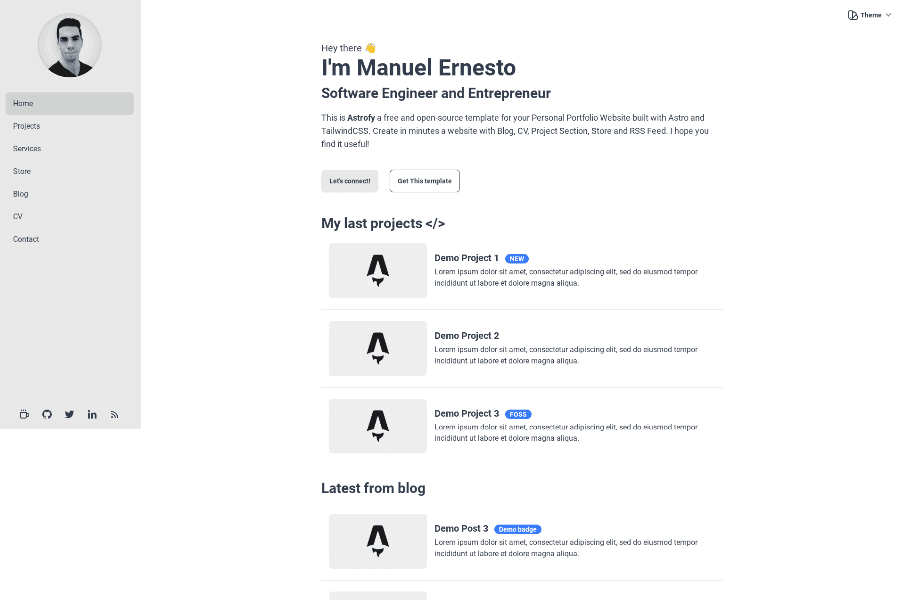
Astrofy is a feature-rich blog template and an engaging Astro blog theme with strong visual elements and smooth navigation patterns with personal color options, sidebar navigation, and a stylish layout.
Key Features:
- Sidebar navigation layout
- Smooth scrolling animations
- Fully responsive design
- Blog post listing with category filters
- SEO-friendly markup
- Tailwind CSS styling
- Supports Markdown/MDX
Best For:
Tech commentary blogs, developer diaries, and design-focused publications.
8. Stablo
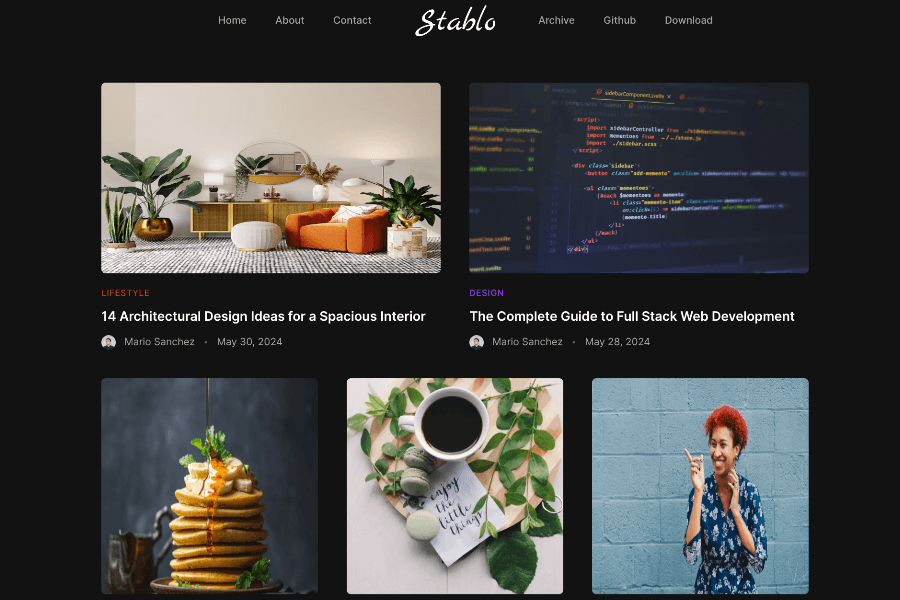
Stablo is a free, open-source Astro + Tailwind + MDX blog template from Web3Templates. It's a minimal and versatile blog theme that’s easy to launch and customize.
Key Features:
- Astro + TailwindCSS + MDX
- Minimal multi-column blog layout
- SEO-friendly and responsive
- Supports Markdown and MDX content
- Lightweight and fast-loading
- Simple folder-based content structure
Best For:
Curated link digests, magazine-style blogs, and team knowledge bases.
9. Geeky
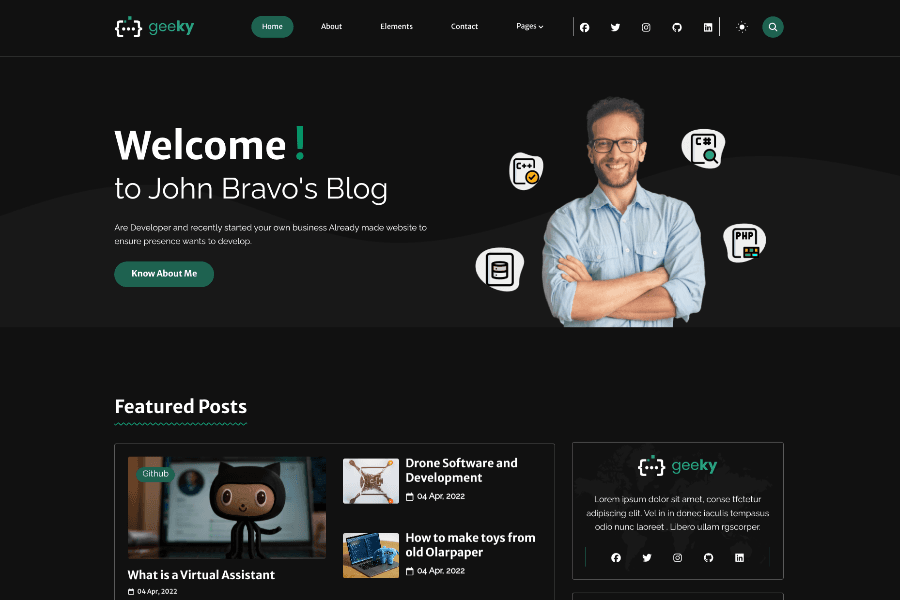
Geeky is a developer-friendly Astro blog theme by Statichunt. It offers flexible styling, rich features, easy customization, and active updates.
Key Features:
- Fully customizable via config files
- Multiple blog layouts
- SEO-optimized structure
- Light/dark mode support
- Category and tag taxonomies
- MDX support
- Responsive design
- Regular updates through 2025
Best For:
STEM education blogs, coding tutorials, and developer-focused publications.
Explore more community-curated Astro blog templates on Statichunt’s Astro Themes.
How To Choose The Best Theme For Your Blog with My Personal Tips
1. Match Your Content Style
Are you writing long-form essays, quick updates, or image-heavy posts? The right theme structure (header, post excerpt display, gallery layout) can make editing much smoother.
2. Prioritize Performance
Astro themes are generally fast, but some layouts load more assets than others. If speed is top priority, start with streamlined templates like Bookworm or Hydrogen, then customize gradually.
3. Think Future-Proof
If you might expand your site later, choose a theme with active maintenance and a clear update history. Check GitHub repos and community forums. Astroplate and our own themes get regular updates.
4. Make Use of Free Demos
Almost all of these have live demos. Click through, scroll, and imagine your content in place of the sample text.
5. Community + Documentation Support
Good documentation saves time. Themefisher, Web3Templates, and a few others have detailed guides and active issue threads, which are crucial if you’re newer to static site generators.
What Kind of Blogs Can You Build With These Templates?
- Book Reviewers & Authors benefit from Bookworm Light's typography.
- Portfolios + Process Journals shine with Northendlab’s gallery integration.
- Tech Writers & Developers feel at home with AstroPaper, Astrofy, or Stablo.
- Small Startups can go live fast with Logbook or Astroplate.
Final Thoughts
From my side of the code editor, the right starting theme can save you days of setup and weeks of tweaking. That’s why I love seeing people start simple, launch quickly, and then shape the design as their blog grows. And if you’re just starting, this Astro beginner’s guide will help you create your site step by step.
If you want something fast, future-proof, and well-documented, any of the themes here will serve you well. Happy building, and see you on the next deploy!
